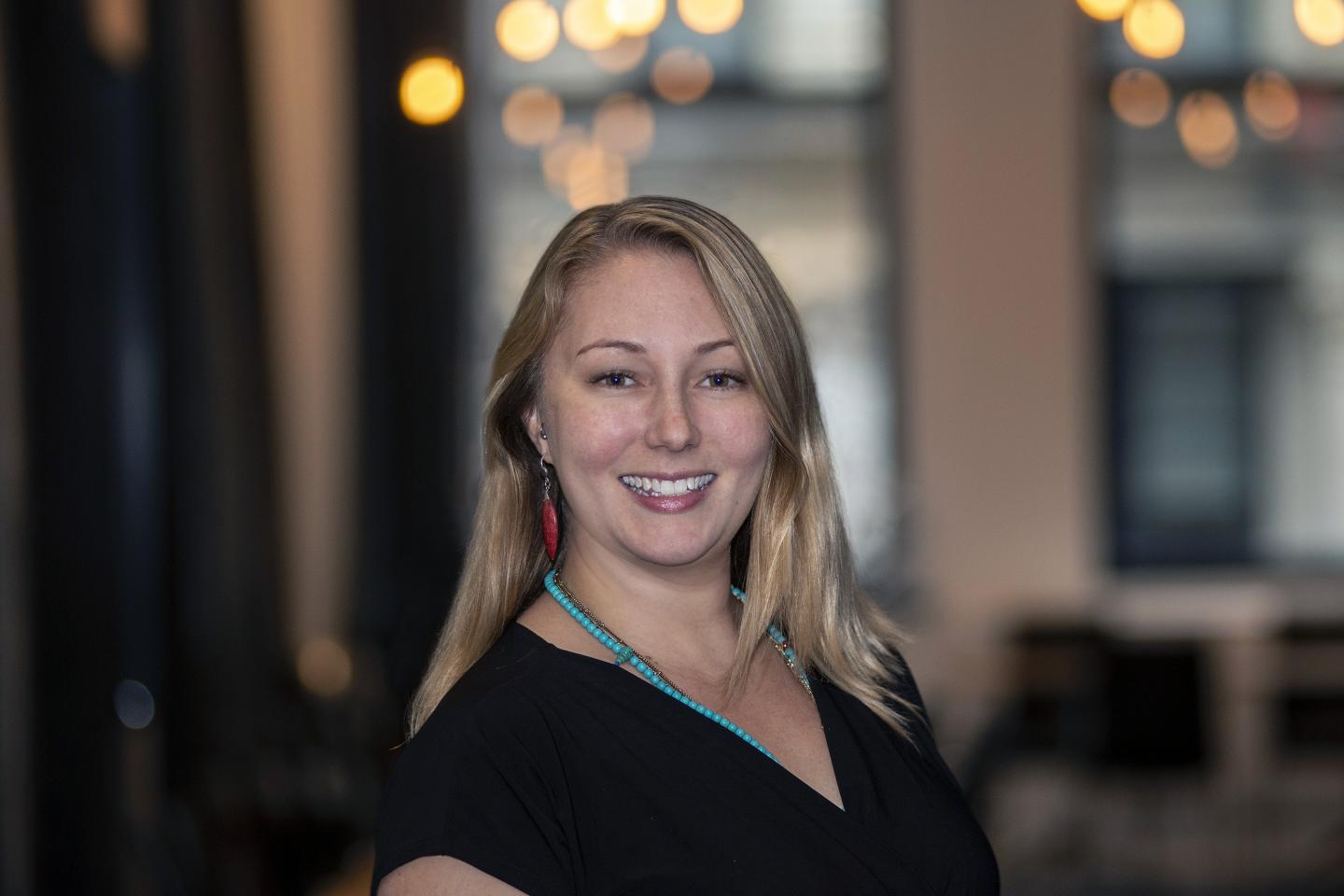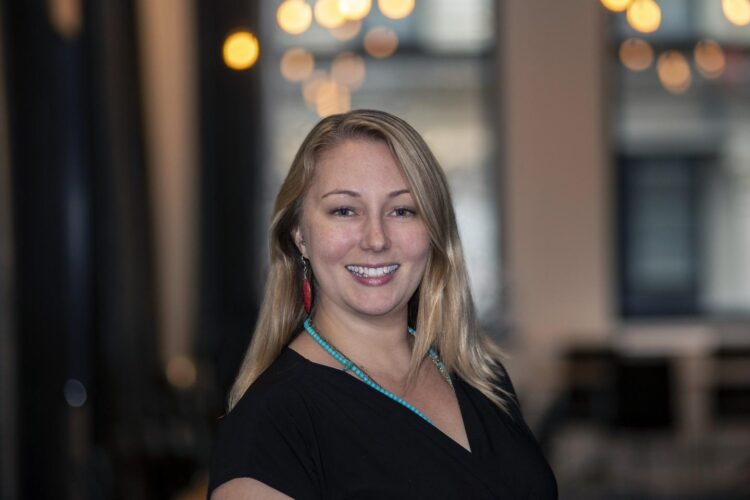Blakesley Burkhart is working to gain a better grasp of how gas and dust become stars and planets

Credit: Courtesy of Blakesley Burkhart
Blakesley Burkhart’s childhood days spent volunteering at a science museum and watching the Discovery Channel and sci-fi shows sparked her love of science and fascination with the stars.
“These were the beginning years of the Hubble Space Telescope and the golden age of Mars Pathfinder,” she said. “I loved learning and I wanted to be a part of the process of scientific discovery.”
Now, two decades later, the 34-year-old astrophysicist and assistant professor in the department of physics and astronomy in the School of Arts and Sciences at Rutgers University-New Brunswick is being recognized as an innovative young scientist.
The David and Lucile Packard Foundation announced today that Burkhart was chosen as a 2020 science and engineering fellow, a distinction shared by all three U.S. women who won the Nobel Prize this year, two for science and one for literature.
Burkhart was awarded $875,000 over the next five years to further her research into studies of the formation of stars. In 2007, Rutgers physicist Emil Yuzbashyan also was named as a Packard Fellow.
“A Packard Fellowship is a big honor that I am thrilled to receive,” said Burkhart, who grew up in Louisville, Kentucky. “There are still major gaps in our understanding of how the solar system formed. The Packard Fellowship will give me the freedom to explore these outstanding problems.”
In order to understand how the sun was born, Burkhart’s team at Rutgers, including an undergraduate student, two graduate students and a postdoc, is researching the dynamics of star-forming matter in galaxies, otherwise known as the interstellar medium.
Burkhart and her team are using statistical methods and machine-learning algorithms to study and analyze properties of the interstellar medium to gain a better understanding of how gas and dust are converted into stars and planets.
“The ultimate questions are how do galaxies produce stars, at what rate does this happen and how do they form?” said Burkhart, who was recognized by the Packard Foundation along with 19 other innovative early-career scientists and engineers from across the country. “It’s still a mystery. It’s all about learning the life cycle of matter in galaxies.”
This is the second prestigious award Burkhart has received in the past two years. Last year, she became the recipient of the Annie Jump Cannon Award, the oldest award given out by the American Astronomical Society. The award recognizes women who do notable research in the field of astronomy. Astronomer Annie Jump Cannon, who worked at Harvard University cataloging stars, inspired the prize.
Burkhart earned an undergraduate degree in math and physics from the University of Louisville in Kentucky, a master’s in physics from the University of Wisconsin-Madison and a doctorate in astronomy also from the University of Wisconsin. Afterwards she worked as a postdoctoral fellow at the Harvard-Smithsonian Center for Astrophysics. Her current position at Rutgers is jointly appointed with the Flatiron Institute, Center for Computational Astrophysics in Manhattan.
Despite her early passion for science, Burkhart grew up believing she was better at English and history than math and science. That belief changed as she moved through her college career and realized that those A’s in math were not a fluke.
As an undergraduate she was often the only woman in her physics classes. Today, the field is widening and there are many more women in the classes she teaches.
“I really think a lot of girls, and even young boys, think they are not good at math and science and label themselves before giving themselves a chance,” said Burkhart. “I share my story often with people because if I had listened to the negativity, I would not be living my dream of doing science today.”
At a time when science and data are being questioned by some, Burkhart believes that gaining a better understanding of the galaxy and humanity’s place in the world will make us feel more connected to one another.
“I think if people pay more attention to astronomy, they will start to realize how big the universe is and how small we are in this space,” she said. “We might begin to think of ourselves as one humanity on planet Earth rather than in the nationalistic terms that many see now.”
Since 1988 when the Packard Fellowship began, it has supported the work of scientists and engineers whose research has led to new discoveries that improve people’s lives and enhance the understanding of the universe, according to the foundation. U.S. Nobel Prize winners Frances Arnold (chemistry, 2018) Jennifer Doudna (chemistry, 2020), and Andrea Ghez (physics, 2020) were all Packard Fellows.
“Now more than ever, we need science,” said Arnold, chair of the Packard Fellowships Advisory Panel, who was the 2018 Nobel Laureate in Chemistry and a 1989 Packard Fellow. “In a year when we are confronted by the devastating impacts of a global pandemic, racial injustice and climate change, these 20 scientists and engineers offer us a ray of hope for the future. Through their research, creativity and mentorship to their students and labs, these young leaders will help equip us all to better understand and address the problems we face.”
###
Media Contact
Todd Bates
[email protected]
Original Source
https:/





